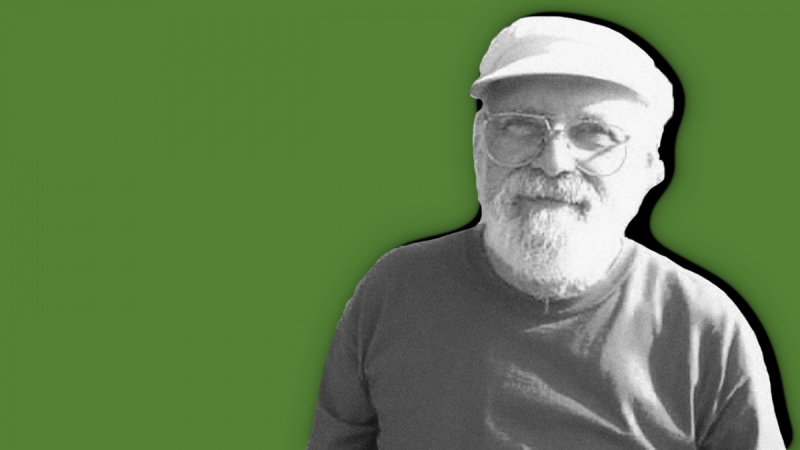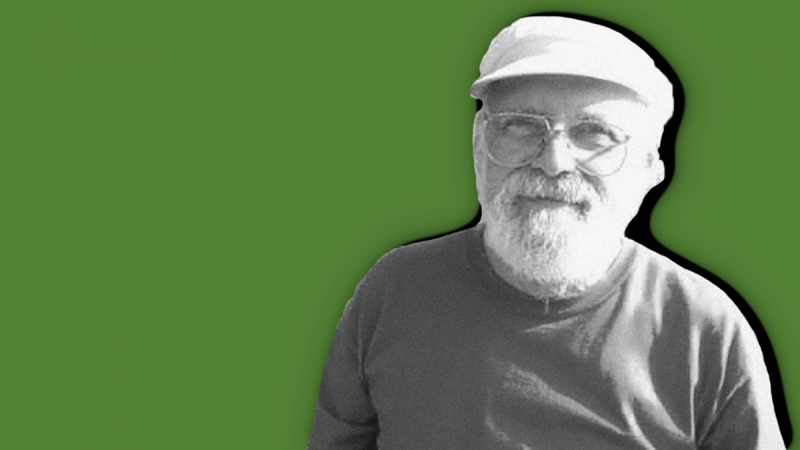Jesse Vorst: Survivor, teacher, humanitarian

Jesse Vorst (1940-2020), Professor of Economics at the University of Manitoba. Image by Canadian Dimension.
Jesse Vorst was a member of the Department of Economics at the University of Manitoba from 1967 until his retirement in 2007, and he continued his affiliation with the university as a senior scholar for several years afterwards. Jesse was born in Rotterdam, Netherlands in 1940 and from his infancy until the age of five, he was a prisoner in the Westerbork concentration camp, where his parents and their four children suffered unspeakable hardship and cruelty until they were liberated by Canadian and Russian soldiers at the end of the Second World War.
It is a remarkable testament to Jesse’s resilience that despite suffering such profound adversity from the very beginning of his childhood, a powerful and unwavering commitment to social justice became the hallmark of his life.
Jesse was a devoted husband to his late wife Alice, and their three sons, Ed, Tommy and Ben and most recently to his surviving wife, Barbara.
Jesse’s training in economics was at Erasmus University in Rotterdam. He was understandably very proud to have had as his mentor Jan Tinbergen who, in 1969, was honoured (together with Norwegian economist Ragnar Frisch) as recipient of the first “Prize in Economic Sciences in Memory of Alfred Nobel.” The Department of Economics at the University of Manitoba was very fortunate indeed to secure Jesse’s services. After interviewing at the London School of Economics, Jesse accepted an offer from McGill University, only to discover that a damp winter in Montreal was far less agreeable than a frigid but dry winter in Manitoba. From his appointment in 1967 until his retirement in 2007, Jesse served the department in many capacities, always with great dedication.
He accepted the challenging perennial task of scheduling the allocated courses. He balanced supply and demand. He did so manually, prior to creation of Excel spreadsheets. Based on the absence of complaints, he clearly outperformed computers.
Jesse took special pride in the work he did for the Society for Socialist Studies which he served from its founding in 1967, setting up its national office and acting as its executive secretary. From 1979 to 1981 he was also managing editor of its peer reviewed journal, Socialist Studies. The focus of this journal was to describe and analyze social, economic and political injustice, and in support of Karl Marx’s call to action, to study the practices of struggle, transformation and liberation.
Together with colleagues in the economics department, Cy Gonick and Paul Phillips, Jesse was a founding father of the successful Labour Studies program that was housed within the Department of Economics. Julie Guard will attest to the warm welcome that Jesse extended when she joined Labour Studies.
At University College, Jesse’s home away from home, he immediately befriended a compatriot and kindred spirit, Tony Brouwer, the very popular college bursar and his wife.
Jesse was ahead of his time environmentally as he rode his sturdy all-season bicycle to work daily. Although there was no more than a negligible risk that his antiquated bike would be stolen, Jesse would take no chance and as is customary in the Netherlands, he always secured his bike with a lock. His treasured bike was, after all, his sole mode of private transportation.
Following the death of Henry Theil, a renowned economist in the Department of Economics at the University of Chicago, who was his friend and compatriot, Theil’s wife asked Jesse to be the literary custodian of her late husband’s unpublished papers. The painstaking task of sifting through and organizing Theil’s voluminous work was, for Jesse, a labour of love. The task required that Jesse travel on several occasions to the Netherlands and Michigan, where retired professor Theil and his wife had lived.
Although a vast ocean separated Canada and the Netherlands, throughout his life, Jesse’s heart remained in Holland. He remained a devoted fan of the top-tier Dutch professional football team, Sparta Rotterdam.
Jesse was proud of Canada for sheltering Queen Juliana during the Second World War and for the central role played by Canadian troops in the liberation of the Netherlands at the end of the conflict. He was equally proud of the Netherlands’ expression of gratitude to Canada by sending one million tulip bulbs to Ottawa each year in perpetuity. Jesse was especially grateful to the Canadian and Russian soldiers who rescued the surviving prisoners, including his family and himself, from the dreadful concentration camp at Westerbork.
In 1776, a Scottish moral philosopher, Adam Smith, wrote a monumental book titled An Inquiry Into the Nature and Causes of the Wealth of Nations. This book laid the foundation for modern economic theory. The central tenet of the book, and indeed of mainstream economics since its publication, was encapsulated in the following famous passage that appears in Volume 1: “It is not from the benevolence of the butcher, the brewer, or the baker that we expect our dinner, but from their regard to their own self-interest. We address ourselves not to their humanity but to their self-love, and never talk to them of our own necessities, but of their advantages.”
It is no small irony that Jesse’s profound humanity and his selflessness belied the central tenet of mainstream economics.
Generously endowed with charisma, kindness, decency, wit, wisdom and above all else, his passionate pursuit of social justice, Jesse inspired generations of students at the University of Manitoba. Countless former students have expressed their deep admiration for the enormous positive impact he had on their lives. The ultimate compliment to Jesse was a posthumous tribute by a former student who described Jesse as “a mensch among mensches.”
This tribute was written with assistance from Jesse’s sons and colleagues.
Irwin Lipnowski is an associate professor of economics at the University of Manitoba.

